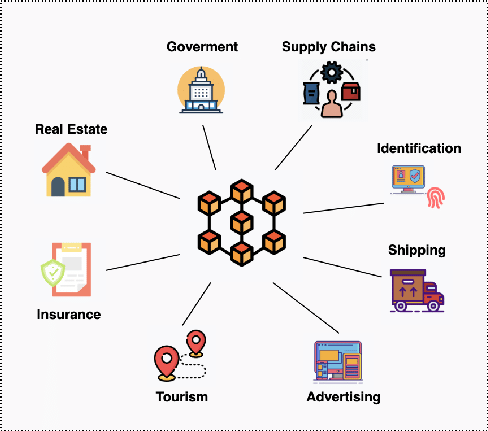Blockchain technology has garnered significant attention over the past decade, primarily due to its association with cryptocurrencies like Bitcoin and Ethereum. However, blockchain’s potential extends far beyond digital currencies, offering transformative applications in industries such as finance, supply chain management, healthcare, and more. In this article, we will explore the fundamentals of blockchain technology, its current trends, and the impact it’s having across various sectors.
What is Blockchain Technology?
Blockchain is a decentralized digital ledger that records transactions across a network of computers in a secure, transparent, and tamper-resistant manner. Unlike traditional databases, which are controlled by a central authority, blockchain distributes data across multiple nodes, ensuring that no single entity has full control over the data. Each “block” in a blockchain contains a list of transactions, and blocks are linked together in chronological order, forming a “chain.”
Blockchain’s key features include:
- Decentralization: There is no central authority controlling the data, which is distributed across a network of nodes.
- Immutability: Once data is added to the blockchain, it is nearly impossible to alter, making the system tamper-resistant.
- Transparency: Every transaction is recorded on a public ledger, allowing for a high level of transparency.
- Security: Advanced cryptographic algorithms ensure that data is secure and cannot be easily hacked or manipulated.
Key Blockchain Trends
Blockchain technology is evolving rapidly, with several key trends shaping its development and adoption:
1. The Rise of Decentralized Finance (DeFi)
Decentralized finance (DeFi) is one of the most prominent blockchain trends, offering a wide range of financial services without traditional intermediaries like banks. DeFi platforms use smart contracts on blockchain networks, such as Ethereum, to facilitate lending, borrowing, trading, and earning interest on digital assets. DeFi is democratizing access to financial services by allowing anyone with an internet connection to participate in the global financial system.
2. Blockchain and Supply Chain Management
Blockchain’s transparency and immutability make it ideal for supply chain management. By using blockchain, companies can track products throughout the entire supply chain, from manufacturing to delivery. This not only improves transparency but also helps verify the authenticity of goods, reduce fraud, and ensure compliance with industry standards. Major companies like Walmart and IBM are already leveraging blockchain to enhance supply chain efficiency.
3. NFTs and the Tokenization of Assets
Non-fungible tokens (NFTs) have gained significant attention as digital assets that represent ownership of unique items, such as art, music, and virtual real estate. NFTs are built on blockchain technology, allowing creators to prove ownership and authenticity of their digital assets. Beyond art and collectibles, tokenization is being explored for real-world assets like real estate, allowing for fractional ownership and more accessible investment opportunities.
Blockchain Applications Across Industries
Blockchain is having a transformative impact across a variety of industries. Here are a few sectors where blockchain is making significant strides:

1. Financial Services
Blockchain is revolutionizing the financial sector by enabling faster, more secure transactions without the need for intermediaries. Cryptocurrencies, stablecoins, and decentralized exchanges (DEXs) are reshaping how money is transferred, stored, and traded. In addition to DeFi, blockchain is being used for cross-border payments, reducing transaction times and costs.
2. Healthcare
In healthcare, blockchain is improving data management and patient privacy. By storing medical records on a blockchain, patients gain greater control over their personal data, and healthcare providers can access accurate, up-to-date information. Blockchain also helps streamline clinical trials by securely storing research data and ensuring transparency in the drug development process.
3. Real Estate
Blockchain is disrupting the real estate industry by enabling the tokenization of property assets. Through smart contracts, property transactions can be automated and executed more quickly, reducing the need for intermediaries like brokers. Tokenized real estate allows for fractional ownership, making property investments more accessible to a broader audience.
Challenges and Limitations of Blockchain
Despite its potential, blockchain technology still faces several challenges that need to be addressed for broader adoption:
1. Scalability
Blockchain networks, particularly public blockchains like Bitcoin and Ethereum, struggle with scalability issues. As the number of users and transactions grows, the network can become congested, leading to slower transaction times and higher fees. Solutions such as layer 2 scaling and sharding are being explored to improve blockchain scalability.
2. Regulatory Uncertainty
Blockchain operates in a rapidly changing regulatory environment. Governments and regulatory bodies around the world are still grappling with how to regulate blockchain applications, particularly cryptocurrencies. Regulatory uncertainty can slow down the adoption of blockchain in industries like finance and healthcare, where compliance is critical.
3. Energy Consumption
Some blockchain networks, particularly those that rely on proof-of-work (PoW) consensus algorithms, consume vast amounts of energy. This has raised concerns about the environmental impact of blockchain technology. Efforts are being made to transition to more energy-efficient consensus mechanisms, such as proof-of-stake (PoS), to address these concerns.
The Future of Blockchain Technology
Despite the challenges, blockchain technology is poised for continued growth and innovation. The future of blockchain will likely include:
1. Improved Interoperability
Currently, many blockchain networks operate in isolation, limiting the ability to transfer assets and data between different blockchains. Efforts are underway to improve interoperability, allowing seamless interaction between multiple blockchains and fostering a more connected ecosystem.
2. Mainstream Adoption
As blockchain technology matures, it is expected to move from niche applications to mainstream use. With advancements in scalability, security, and regulatory clarity, more industries will adopt blockchain for everyday operations, and consumers will benefit from decentralized services.
3. Integration with Emerging Technologies
The integration of blockchain with other emerging technologies like artificial intelligence (AI) and the Internet of Things (IoT) holds immense potential. These technologies can complement each other, creating smarter, more efficient systems that leverage blockchain’s transparency, security, and decentralization to power applications in smart cities, autonomous vehicles, and more.
Conclusion
Blockchain technology is rapidly evolving and has the potential to transform a wide range of industries by providing greater transparency, security, and efficiency. From decentralized finance to supply chain management, the applications of blockchain are vast and varied. As blockchain continues to overcome its challenges, we can expect it to play a critical role in shaping the future of technology and business.


